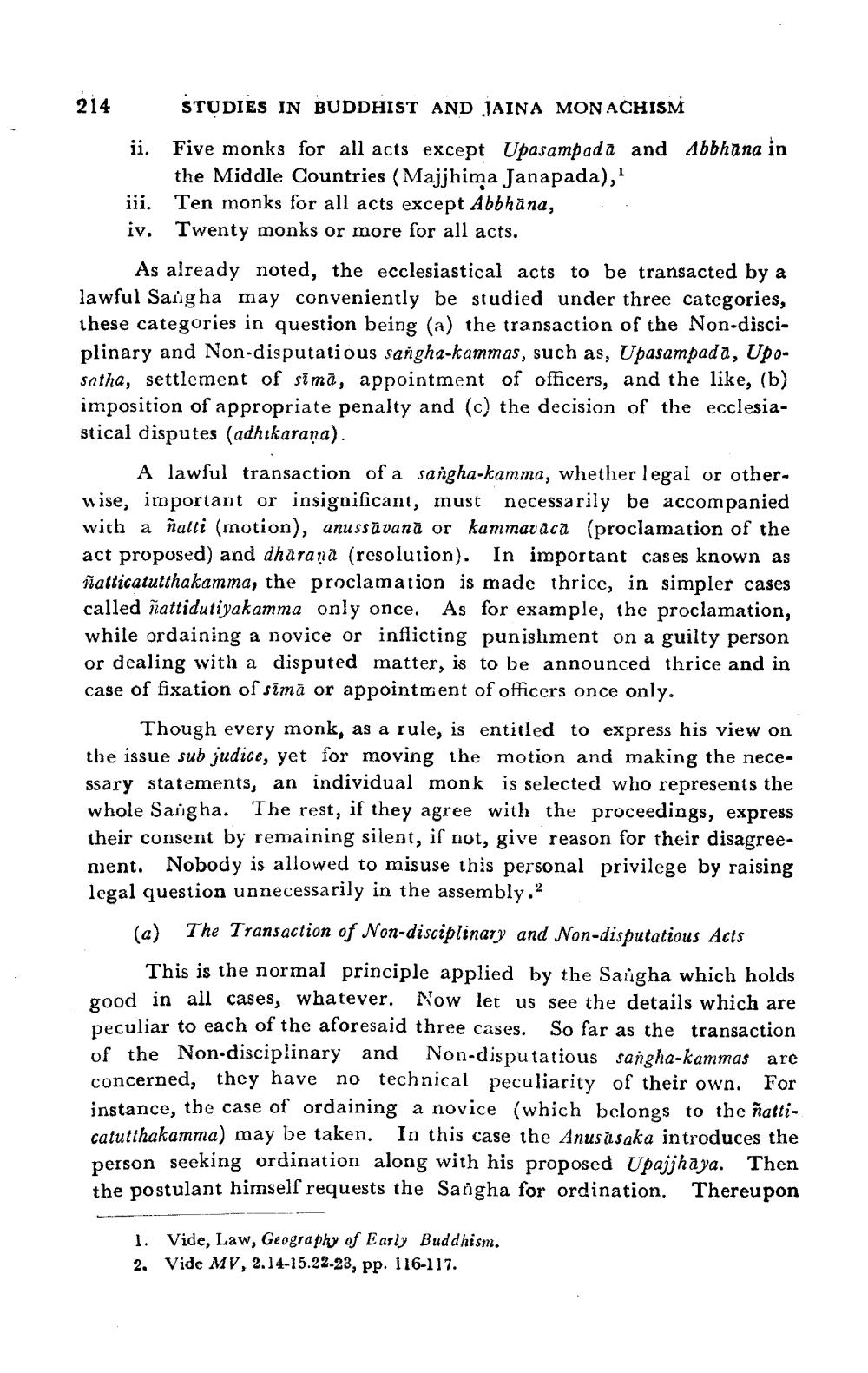________________
214 STỤDIES IN BUDDHIST AND JAINA MONACHISM ii. Five monks for all acts except Upasampada and Abbhana in
the Middle Countries (Majjhima Janapada), iii. Ten monks for all acts except Abbhana, iv. Twenty monks or more for all acts.
As already noted, the ecclesiastical acts to be transacted by a lawful Saig ha may conveniently be studied under three categories, these categories in question being (a) the transaction of the Non-disciplinary and Non-disputatious sangha-kammas, such as, Upasampada, Uposatha, settlement of simā, appointment of officers, and the like, (b) imposition of appropriate penalty and (c) the decision of the ecclesiastical disputes (adhıkarana).
A lawful transaction of a sangha-kamma, whether legal or otherwise, important or insignificant, must necessarily be accompanied with a ñalti (motion), anussāvanā or kam mavácă (proclamation of the act proposed) and dharanā (resolution). In important cases known as natticatutthakamma, the proclamation is made thrice, in simpler cases called ñattidutiyakamma only once. As for example, the proclamation, while ordaining a novice or inflicting punishment on a guilty person or dealing with a disputed matter, is to be announced thrice and in case of fixation of simă or appointment of officers once only.
Though every monk, as a rule, is entitled to express his view on the issue sub judice, yet for moving the motion and making the necessary statements, an individual monk is selected who represents the whole Saigha. The rest, if they agree with the proceedings, express their consent by remaining silent, if not, give reason for their disagreement. Nobody is allowed to misuse this personal privilege by raising legal question unnecessarily in the assembly.
(a) The Transaction of Non-disciplinary and Non-disputatious Acts
This is the normal principle applied by the Sangha which holds good in all cases, whatever. Now let us see the details which are peculiar to each of the aforesaid three cases. So far as the transaction of the Non-disciplinary and Non-disputatious sangha-kammas are concerned, they have no technical peculiarity of their own. For instance, the case of ordaining a novice (which belongs to the ñatticatutthakamma) may be taken. In this case the Anusasaka introduces the person seeking ordination along with his proposed Upajjhaya. Then the postulant himself requests the Sangha for ordination. Thereupon
1. Vide, Law, Geography of Early Buddhism. 2. Vide MV, 2.14-15.22-23, pp. 116-117.




